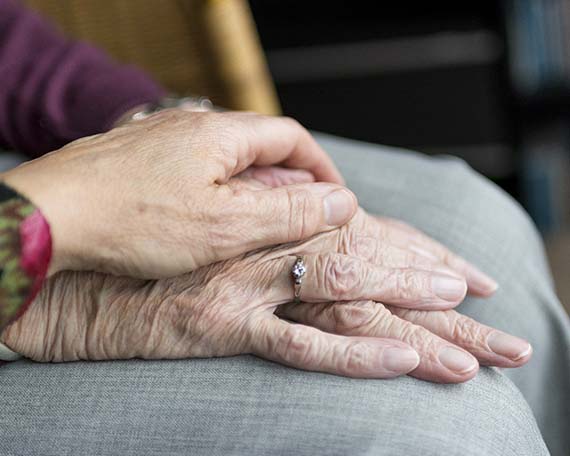What is Person-Centred Care and Why is It Important?

Person-centred care (PCC) has become a core concept in healthcare and social services in recent years. This approach emphasises the importance of seeing patients or service users as individuals, focusing on their unique needs, preferences, and values. Unlike traditional models of care, which often focus on treating the illness or condition, person-centred care places the individual at the heart of the decision-making process. This approach involves not just the patient but their family members, healthcare professionals, and even the broader community in the planning and provision of care services.
In this blog, we will explore what person-centred care means, why it is important, and how it leads to improved health and wellbeing outcomes for individuals.
Understanding Person-Centred Care
At its core, person-centred care is about recognising each person as a unique individual with their own needs, experiences, and preferences. It acknowledges that people are experts in their own lives and should be active participants in making decisions about their care. The philosophy goes beyond simply treating a health condition; it focuses on treating the whole person.
Person-centred care takes into account:
- A person’s values and preferences: Respecting individual choices, cultural beliefs, and life experiences.
- Personalised care: Tailoring care plans to meet an individual’s unique needs, including physical, emotional, and social requirements.
- Active involvement: Ensuring the person is involved in their care decisions, from creating treatment plans to agreeing on goals.
- Empowerment: Supporting individuals to make informed choices about their care and support.
This approach ensures that care providers consider not only a person’s health conditions but also their mental health, social circumstances, family dynamics, and overall quality of life.
The Importance of Person-Centred Care
- Improved Health and Wellbeing Outcomes
The evidence shows that person-centred care leads to better health outcomes for individuals. By recognising and addressing a person's individual needs, preferences, and circumstances, care providers can deliver more effective treatments and interventions. For example, when patients are involved in the decision-making process, they are more likely to adhere to treatment plans, leading to better health management and improved health outcomes.
Person-centred care also enhances mental health by fostering a sense of autonomy and self-worth. People who are treated with dignity and respect tend to experience improved wellbeing, and they are more likely to manage long-term health conditions effectively. This approach can even be beneficial in end of life care, where individuals are given control over how they want to spend their final days, ensuring they are treated in a way that honours their dignity and wishes.
- Supporting Individuals to Manage Their Own Health
One of the key aspects of person-centred care is helping individuals take responsibility for their own care. This is done by ensuring that they are fully informed about their treatment options and are empowered to make decisions that align with their own preferences.
By focusing on shared decision-making, healthcare professionals can collaborate with individuals to co-create treatment plans that are more likely to be successful. Whether managing a chronic condition or deciding on a course of treatment, involving individuals in the process enables them to make informed decisions that align with their own opinions and preferences. This is especially important in the context of mental health, where person-centred care ensures that people are supported in making decisions that are right for them, rather than simply following a standard treatment protocol.
- Improved Patient and Family Member Experience
Person-centred care is not only about the individual receiving care but also about improving the experience of their family members. By involving families in care decisions and keeping them informed, this approach ensures that they feel respected, valued, and included in the process. This can alleviate stress and anxiety for families, who often bear significant responsibility for the care of their loved ones.
Involving family members in the care process also leads to better care plans, as families often have vital insights into the individual’s preferences, history, and needs. This ensures that the care provided is truly personalised, which is essential for both patient experience and the overall effectiveness of treatment.
- Equality and Empowerment in Care Services
A crucial element of person-centred care is the emphasis on equal partnership between healthcare professionals and service users. This approach empowers individuals by giving them a voice in the decisions that affect their care. It fosters a collaborative approach between service users, healthcare professionals, and care providers, with a shared goal of improving the person’s life.
By respecting people’s preferences and incorporating them into treatment plans, care services can better align with the individual’s values and priorities. Whether dealing with learning disabilities, health conditions, or other personal factors, person-centred care ensures that each person receives the care and support they need in a way that is right for them.
- Building Better Relationships Through Good Communication
Effective communication is a cornerstone of person-centred care. Healthcare professionals must engage in open, honest dialogue with service users to ensure that they understand their treatment options, health conditions, and any potential risks or benefits. This involves listening to the person’s point of view and actively involving them in the decision-making process.
Good communication also means that care providers are attuned to a person’s social circumstances and wellbeing needs. For example, if a person expresses a desire to remain physically comfortable and independent, this can influence the care plan, leading to a more tailored and respectful approach to their treatment and day-to-day life.
- Better Management of Health Conditions
By focusing on the individual needs of patients, person-centred care ensures that people with chronic conditions or complex health needs receive co-produced care that is more effective. Through monitoring care and providing tailored support, healthcare professionals can ensure that a person’s care plan is continually adapted to their changing needs. This is particularly beneficial for managing long-term conditions, where ongoing adjustments are necessary to improve health and wellbeing outcomes.
- Promoting Independent Advocacy and Choice
Person-centred care also promotes the role of independent advocates, ensuring that individuals who are unable to make decisions for themselves have a support system in place to act in their best interest. Independent advocacy helps service users navigate complex health and social services, ensuring that their voice is heard even when they are not able to communicate directly.
This aligns with the broader goals of the health foundation and government policies to promote informed choices and enable individuals to exercise their rights to make decisions about their own care. By supporting service users to be active participants, person-centred care helps people feel empowered and more in control of their lives.
- Enhancing Social Services and Health and Social Care Collaboration
Person-centred care requires the collaboration of a range of professionals across health and social care settings. This can include doctors, nurses, social workers, care assistants, and even local authorities. Partnership working across these sectors ensures that a person's physical, mental, and emotional needs are met in a holistic way.
This collaborative approach is also crucial for improving the patient experience and for supporting individuals through complex transitions, such as from hospital to home or from one care provider to another. By working together, all parties involved in the care process can create a more comprehensive and seamless experience for the service user.
The Role of Training in Person-Centred Care
To provide effective person-centred care, care providers and health professionals must possess the necessary knowledge, skills, and attitudes. A robust training framework is essential for ensuring that staff are equipped to provide care that is truly tailored to individual needs. The core skills education for staff should include not only medical knowledge but also the communication skills, empathy, and understanding needed to deliver personalised care.
Training in person-centred care ensures that healthcare professionals can work collaboratively with service users, respect their preferences, and make informed decisions together. By incorporating person-centred approaches into training programmes, healthcare settings can build a culture of respect, collaboration, and empowerment.
The Broader Impact of Person-Centred Care on Communities
The principles of person-centred care extend beyond individual treatment and can have a broader impact on entire communities. By focusing on people's preferences and ensuring that care is tailored to individual needs, person-centred care fosters a more inclusive environment where people feel valued, heard, and respected. This approach can help reduce stigma, particularly for individuals with learning disabilities or those living with mental health challenges, who may often feel marginalised in traditional care settings.
As more healthcare providers and social services embrace person-centred approaches, the overall quality of care across the healthcare system improves. By emphasising the autonomy and preferences of individuals, person-centred care aligns with the NHS England and government policy goals to provide best practice in care delivery. It also promotes partnership working, where all stakeholders—including patients, families, healthcare professionals, and local authorities—collaborate to ensure that care is delivered in the most effective and compassionate way.
The Role of Healthcare Professionals in Delivering Person-Centred Care
The role of healthcare professionals in person-centred care cannot be overstated. These professionals must go beyond simply treating symptoms and become active participants in the patient’s journey. Their role is to listen carefully to the service user, respect their own opinions, and take into account their social circumstances, preferences, and previous experiences. It’s about treating the individual as a whole person, not just focusing on the health condition or the immediate medical need.
Healthcare professionals also need to be well-versed in transferable behaviours—the ability to adapt and apply skills across different care settings and contexts. This flexibility is key to ensuring that care is personalised, whether the individual is receiving treatment in a hospital, care home, or community setting. The importance of a collaborative approach means that care providers must work alongside the individual and their family members to understand their goals, needs, and aspirations, making them equal partners in the care process.
Supporting People Throughout Their Care Journey
A crucial aspect of person-centred care is the ongoing support people receive throughout their care journey. From the early stages of treatment through to end of life care, it’s important that individuals are consistently involved in decisions and that their preferences are always at the forefront of the care process. For people facing health conditions that may be life-limiting or progressive, this approach ensures that they are given the autonomy to make informed choices about their care.
In end of life care, person-centred principles are especially important. People are given the opportunity to express their wishes regarding the type of care they receive, where they receive it, and how they want to spend their final days. By involving family members and close friends in these decisions, the care process becomes a shared experience that respects both the individual’s desires and the emotional needs of those around them. This enhances the quality of life during difficult times, providing comfort and peace of mind for everyone involved.
Person-Centred Care and the Future of Healthcare
As healthcare continues to evolve, person-centred care will remain a fundamental element in improving the quality of life for individuals. The focus on health and social care that is tailored to individual needs will be pivotal in shaping the future of services. With more emphasis being placed on personalised care, treatment plans, and social care, it’s clear that this approach will drive better outcomes for people across the country.
By adopting person-centred care, care providers are not only improving the patient experience but also creating a system that values the individual at every stage of their care. At Queens View Harbour Care Home, we are committed to maintaining a standard of care that honours these principles, ensuring that every person receives the highest quality of life and dignity, regardless of their age, health condition, or social circumstances. Ultimately, it is the individual needs and the desire to empower people to live life on their own terms that will define the future of healthcare and social services for years to come.
Why Person-Centred Care Matters at Queens View Harbour
At Queens View Harbour Care Home, we are proud to embrace person-centred care in every aspect of the services we provide. We understand that each individual is unique, and we strive to ensure that their care is not only about addressing their health needs but also about improving their overall quality of life. By respecting people's preferences and ensuring that they are active participants in their care, we aim to enhance the patient experience and ensure that each person’s dignity is upheld.





